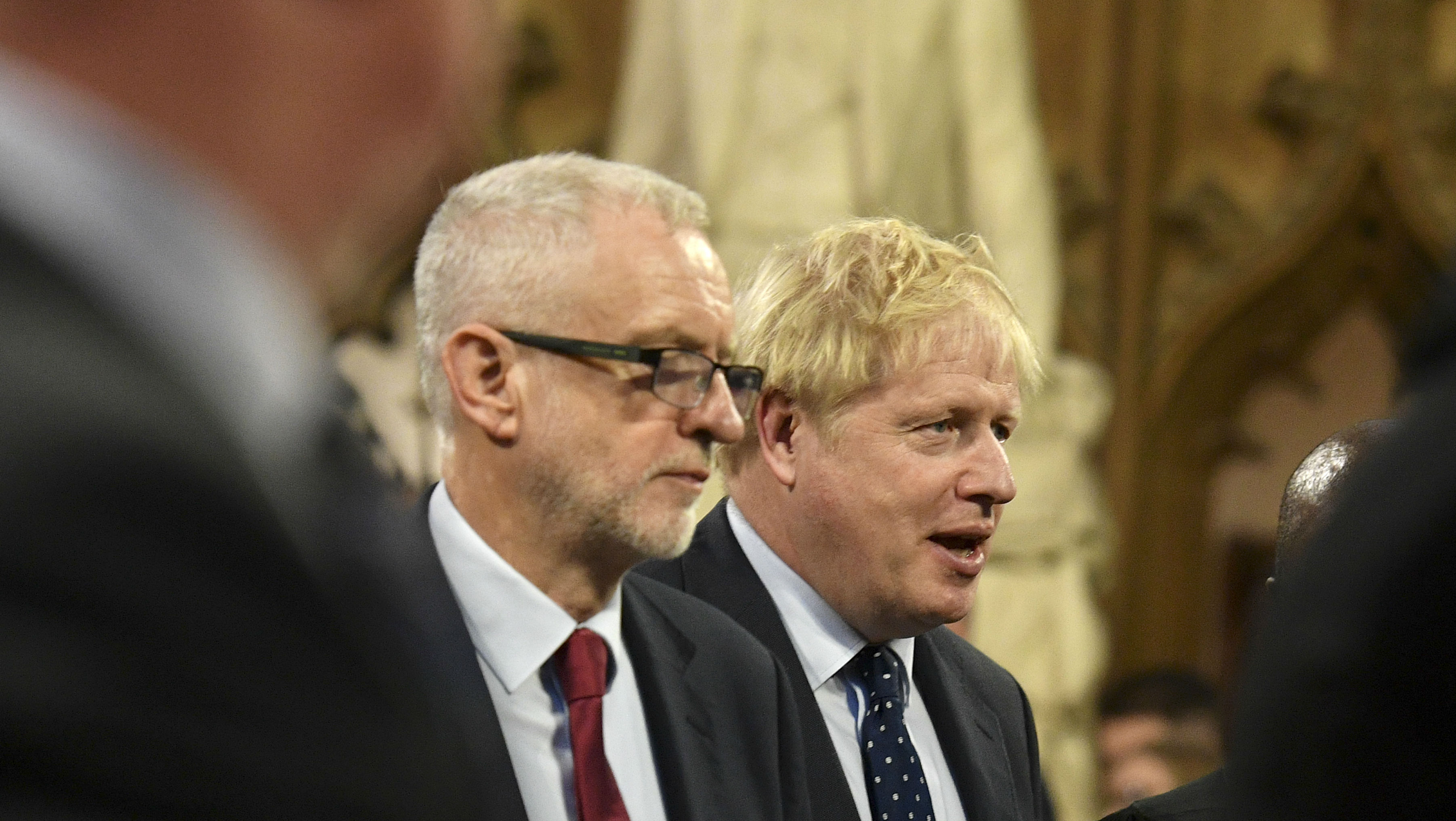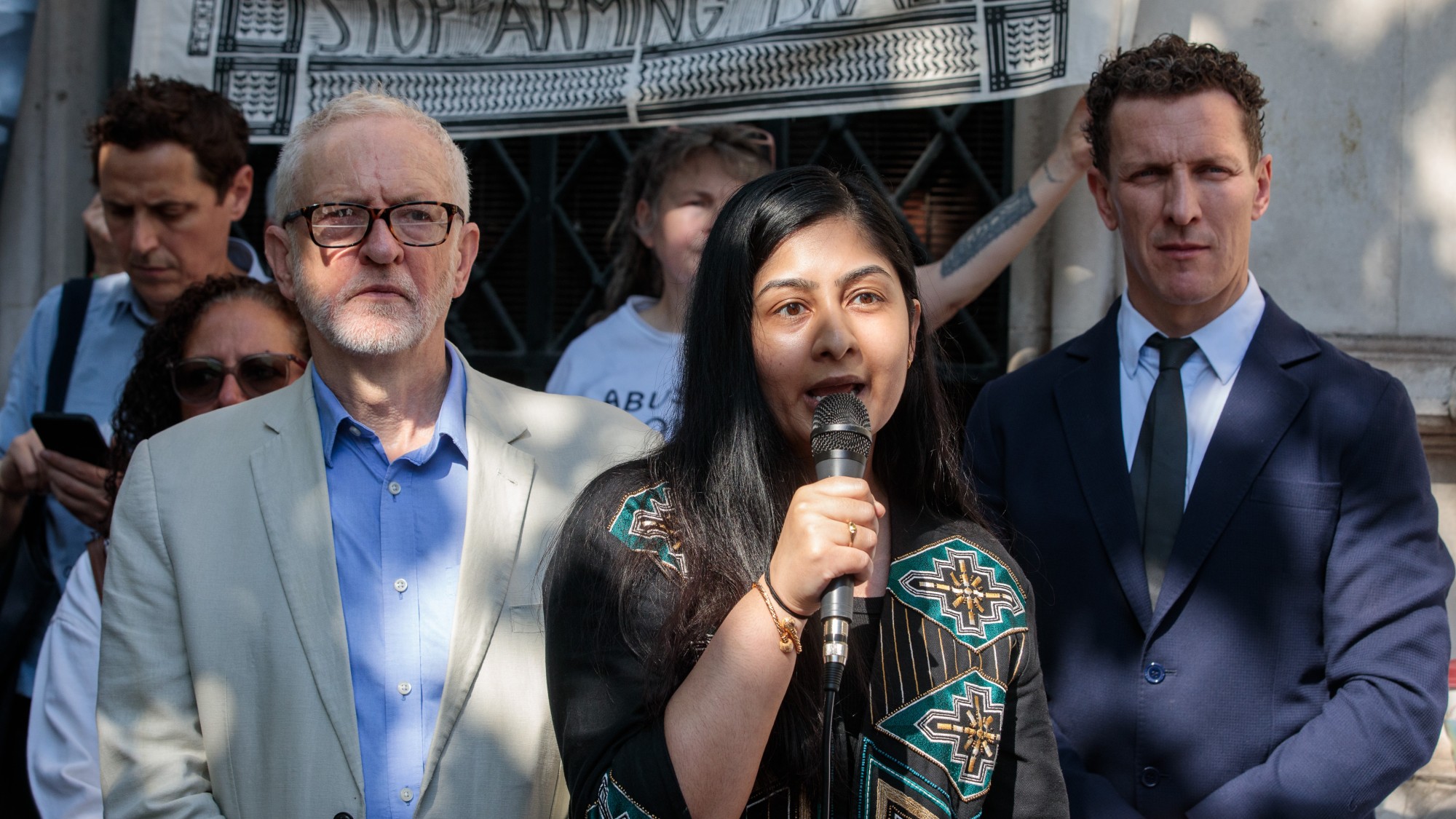Labour vs. Tories: the first 100 days
Conservatives promising Brexit and tax cuts while rival party pledges investment and nationalisation

A free daily email with the biggest news stories of the day – and the best features from TheWeek.com
You are now subscribed
Your newsletter sign-up was successful
The two main parties have set out their plans for their first 100 days of office if they win this Thursday’s general election.
The focus on this initial period in a newly elected administration’s rule began in the US, where the round number is marked with early assessments of a president’s reign. It was first used widely here in the UK during the early months of Tony Blair’s first government.
With a number of time-specific pledges on the table, here’s how the current two main parties’ first few months might unfold.
The Week
Escape your echo chamber. Get the facts behind the news, plus analysis from multiple perspectives.

Sign up for The Week's Free Newsletters
From our morning news briefing to a weekly Good News Newsletter, get the best of The Week delivered directly to your inbox.
From our morning news briefing to a weekly Good News Newsletter, get the best of The Week delivered directly to your inbox.
Labour
In a speech today setting out Labour’s initial priorities, John McDonnell will promise to deliver a budget to “end austerity” and announce what PoliticsHome describes as “a multibillion-pound programme of investment”.
McDonnell will also set out plans for “democratic control” of newly nationalised water and energy firms.
“In our first 100 days, we will start the process of bringing water and energy into public ownership,” he will say. “We’ll make sure decisions are taken locally by those who understand the services - those who use them and deliver them.
A free daily email with the biggest news stories of the day – and the best features from TheWeek.com
“Meetings will be public and streamed online with new transparency regulations set higher than ever before.”
The Times says Labour’s continuing focus on renationalisation “seeks to capitalise on what polls suggest is one of the party’s most popular manifesto pledges”.
Turning to environmental matters, McDonnell will outline Labour’s plans to invest in green industries, skills training and regional development, in a bid to stem the growth of “dreary, exploitative, insecure and low-paid jobs”.
The party is also promising that under a Labour government, a new National Transformation Unit would be set up before Christmas in order to get money moving “out of the City and Whitehall” and into neglected areas.
–––––––––––––––––––––––––––––––For a round-up of the most important stories from around the world - and a concise, refreshing and balanced take on the week’s news agenda - try The Week magazine. Start your trial subscription today –––––––––––––––––––––––––––––––
Boris Johnson’s plans for the first 100 days of his new government focus on leaving the EU and passing a tax-cutting post-Brexit budget.
The prime minister has pledged to unveil a budget in February that would include in a rise in the National Insurance threshold which would save workers around £85 a year.
New laws would also be passed to end the automatic release of serious violent and sexual offenders at the halfway point of their sentence, he says.
As Sky News reports, other measures being touted by the Tories include improving mobile phone signals in the countryside and increasing funding for schools.
However, some of Johnson’s pledges for his first 100 days are less concrete. The PM says he will launch the biggest review of defence, security and foreign policy “since the end of the Cold War”, but has not explained what that might involve.
Similarly, his vow to hold cross-party talks on social care is also lacking in detail.
-
 Sepsis ‘breakthrough’: the world’s first targeted treatment?
Sepsis ‘breakthrough’: the world’s first targeted treatment?The Explainer New drug could reverse effects of sepsis, rather than trying to treat infection with antibiotics
-
 James Van Der Beek obituary: fresh-faced Dawson’s Creek star
James Van Der Beek obituary: fresh-faced Dawson’s Creek starIn The Spotlight Van Der Beek fronted one of the most successful teen dramas of the 90s – but his Dawson fame proved a double-edged sword
-
 Is Andrew’s arrest the end for the monarchy?
Is Andrew’s arrest the end for the monarchy?Today's Big Question The King has distanced the Royal Family from his disgraced brother but a ‘fit of revolutionary disgust’ could still wipe them out
-
 How corrupt is the UK?
How corrupt is the UK?The Explainer Decline in standards ‘risks becoming a defining feature of our political culture’ as Britain falls to lowest ever score on global index
-
 The high street: Britain’s next political battleground?
The high street: Britain’s next political battleground?In the Spotlight Mass closure of shops and influx of organised crime are fuelling voter anger, and offer an opening for Reform UK
-
 Biggest political break-ups and make-ups of 2025
Biggest political break-ups and make-ups of 2025The Explainer From Trump and Musk to the UK and the EU, Christmas wouldn’t be Christmas without a round-up of the year’s relationship drama
-
 Is a Reform-Tory pact becoming more likely?
Is a Reform-Tory pact becoming more likely?Today’s Big Question Nigel Farage’s party is ahead in the polls but still falls well short of a Commons majority, while Conservatives are still losing MPs to Reform
-
 The launch of Your Party: how it could work
The launch of Your Party: how it could workThe Explainer Despite landmark decisions made over the party’s makeup at their first conference, core frustrations are ‘likely to only intensify in the near-future’
-
 Asylum hotels: everything you need to know
Asylum hotels: everything you need to knowThe Explainer Using hotels to house asylum seekers has proved extremely unpopular. Why, and what can the government do about it?
-
 Taking the low road: why the SNP is still standing strong
Taking the low road: why the SNP is still standing strongTalking Point Party is on track for a fifth consecutive victory in May’s Holyrood election, despite controversies and plummeting support
-
 Your Party: a Pythonesque shambles
Your Party: a Pythonesque shamblesTalking Point Comical disagreements within Jeremy Corbyn and Zarah Sultana's group highlight their precarious position